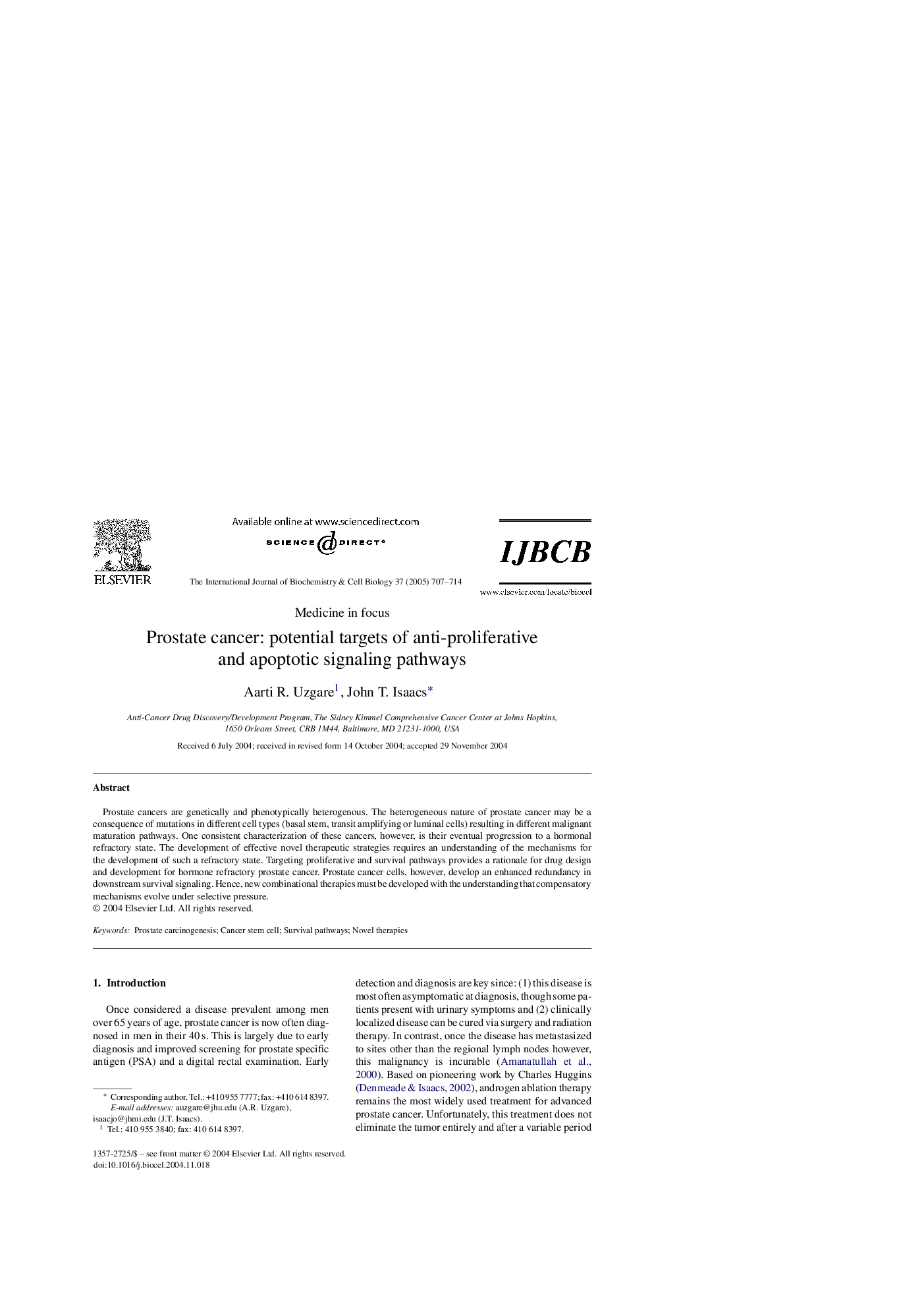| Article ID | Journal | Published Year | Pages | File Type |
|---|---|---|---|---|
| 9890048 | The International Journal of Biochemistry & Cell Biology | 2005 | 8 Pages |
Abstract
Prostate cancers are genetically and phenotypically heterogenous. The heterogeneous nature of prostate cancer may be a consequence of mutations in different cell types (basal stem, transit amplifying or luminal cells) resulting in different malignant maturation pathways. One consistent characterization of these cancers, however, is their eventual progression to a hormonal refractory state. The development of effective novel therapeutic strategies requires an understanding of the mechanisms for the development of such a refractory state. Targeting proliferative and survival pathways provides a rationale for drug design and development for hormone refractory prostate cancer. Prostate cancer cells, however, develop an enhanced redundancy in downstream survival signaling. Hence, new combinational therapies must be developed with the understanding that compensatory mechanisms evolve under selective pressure.
Related Topics
Life Sciences
Biochemistry, Genetics and Molecular Biology
Biochemistry
Authors
Aarti R. Uzgare, John T. Isaacs,
